When a Reddit user asked Redditors on the autism spectrum, “What’s life like?,” the responses poured in. Redditors with autism spectrum disorder explained the advantages, the challenges and the downright unique parts of living with autism, giving fantastic insight into a far too often misunderstood condition. You can read the full thread here.
Take a look at a few of the insightful comments below:
1. “Sometimes [it’s] awesome, other times it’s not. It takes longer to learn certain skills, like driving. And finding work is a nightmare. As for hobbies, you can really have a fantastic time with them since the focus is so strong. The issue is finding your place in a world that doesn’t feel quite right. It can really be rough, but I’m holding out until I find the place in society that is right for me.”
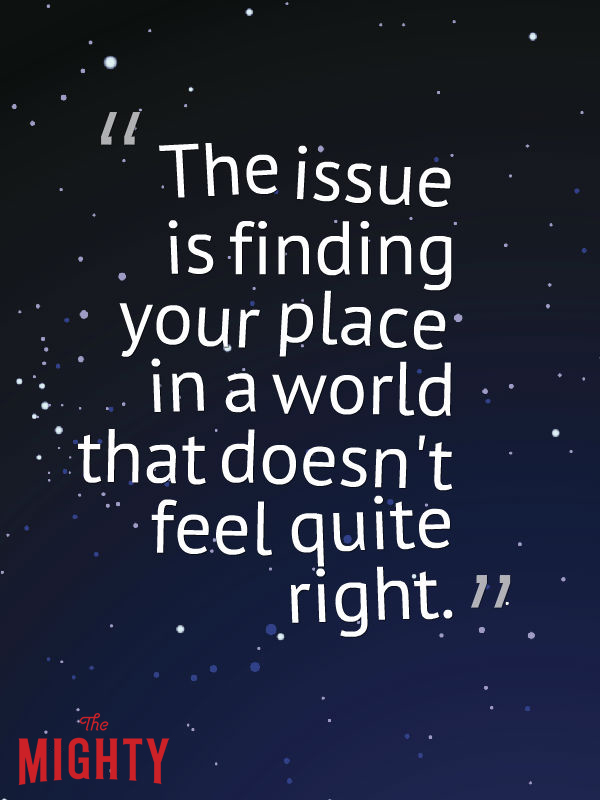
2. “The best way I can find to describe it is running on a different operating system than most other people. Your brain wants to hyper focus on a certain subject and never let go. It’s a jumbled mess that stumbles through life and somehow manages to get where it wants to go. Everything is fragmented and you only see details, not the big picture.”
3. “The good: I’m an extremely visual thinker, and I’m fairly sure that got me the job I’m about to start. I can solve a whole bunch of problems in seconds that others need a lot of help with. I have some hobbies I enjoy and the time to spend on them. The bad: I have social anxiety, can’t stand being in rooms with a lot (more than ten) people in them, don’t have a lot of friends and I’m too anxious to initiate a lot of contact with said friends.”
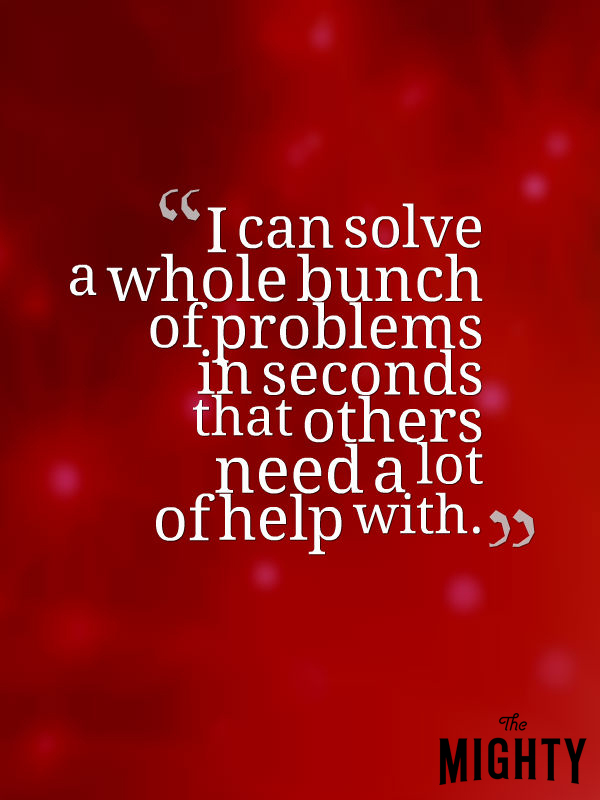
4. “I am known at work as either the guy who hears everything or is completely oblivious. If I’m intent on a project, you could be standing next to me, yelling my name, and I won’t hear you. On the flip side, when working on running the front of the store [where I work], I see and hear everything.”
5. “It’s not that I lack the social skills others have, it’s just that I had to learn them actively and have to keep them in the conscious part of my head whereas others can do this subconsciously. It’s why my mind is easily overwhelmed in social situations and it’s not easy to keep a train of thought going when your train of thought consists of what, for most people, flies under the radar completely.”
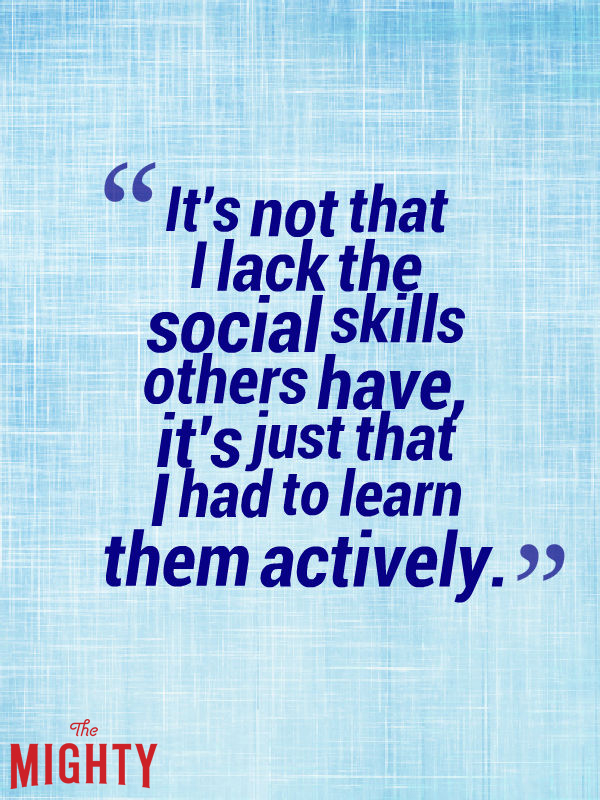
6. “[It’s] normal. Except for the lack of friends. I haven’t talked to anyone outside of my family since the last day of school. I’m also empathetic to the point where I don’t eat because I feel bad for the food. When someone gets mad at me, I assume they hate me and avoid them for months.”
7. “You’re always aware of what all your senses are detecting. I’ll always know when the air conditioning is on or off, for example. I can’t focus on what’s on television if there’s a conversation in that room because I’ll be picking up the conversation and the television equally.”
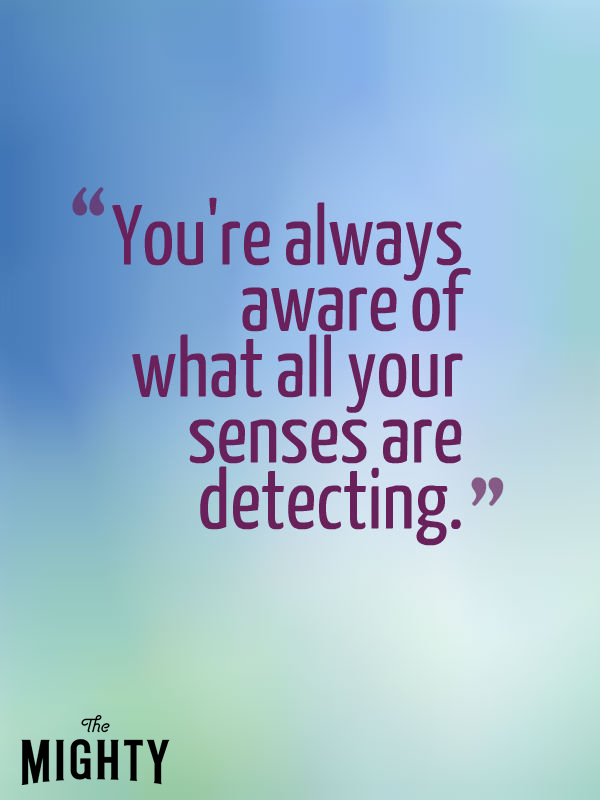
8. “As a guy who [has] Asperger’s, social interaction is probably my biggest shortcoming. My main problem is that I simply abhor small talk. Questions like, ‘What are you majoring in?’ or ‘How many brothers and sisters do you have?’ just make it hard for me to stay interested in a conversation. I understand why we have those conventions. I’m just miffed that I can’t immediately jump into a conversation with someone by talking about our personal interests.”
9. “The anxiety can be insane and overpowering. There are days where I refuse to leave my house because the idea of interacting with people is just too overwhelming. As autistic people, we are constantly having to think about every little thing we do and say, which can be absolutely draining.”
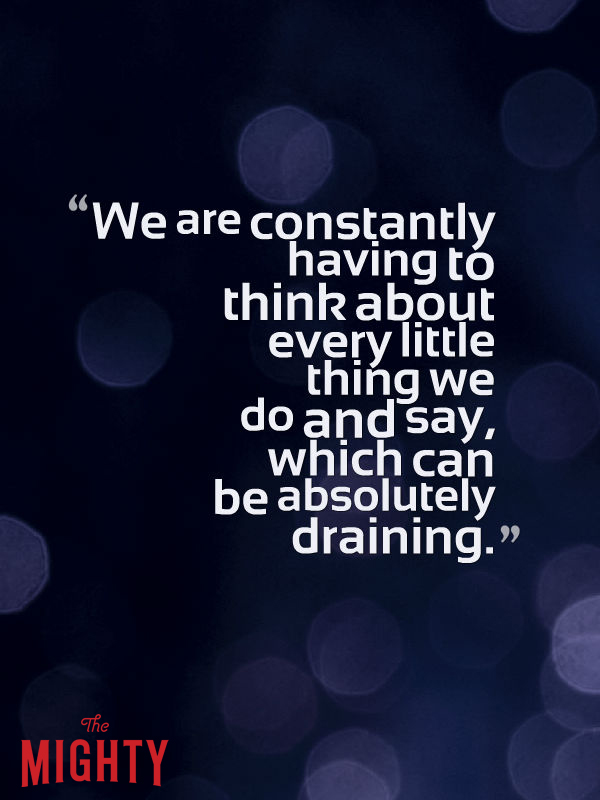
10. “Imagine being in the TV section of a Walmart or Sears and there are around 20 TVs on the wall. Each [is] tuned to a different channel and has the volume on. Now stand there and try to listen to just one of them.”
11. “In short, it’s like you were made to be on a different world with different rules, but you ended up on this one for some reason. Nothing in this world makes sense to you. People say and do weird things, ask you weird questions and get offended by things you think are completely fine. Eventually, you do learn most of the rules, but you always have to remind yourself of what to do.”
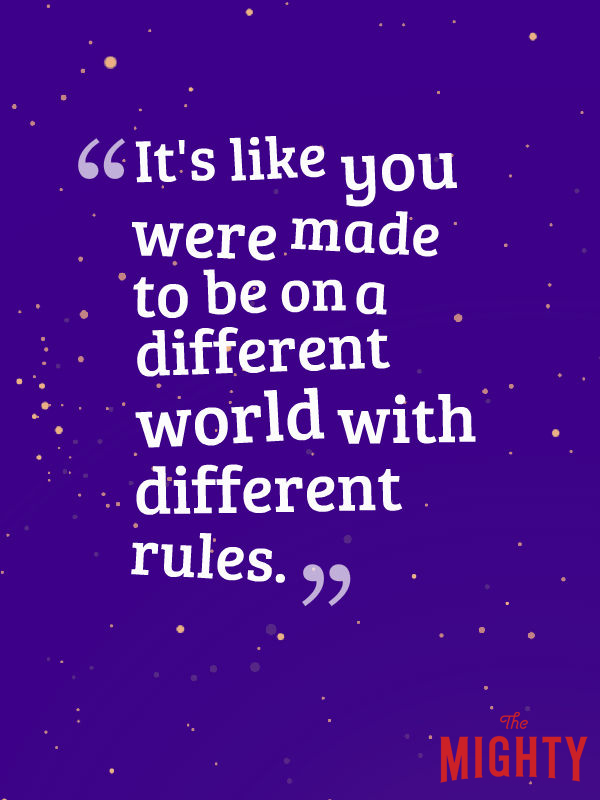
12. “I act a lot. I’ve learned how to behave socially by using role models and mimicking their behaviors and memorizing their speech patterns. It results in sometimes awkward and weird slants to conversations, but over the years I’ve become progressively better at fine-tuning what to use when.”

